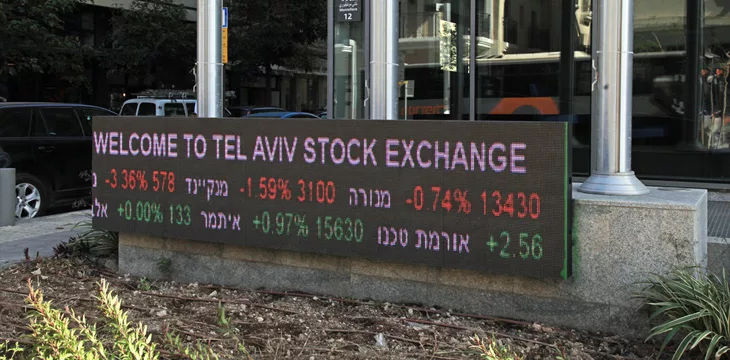|
Getting your Trinity Audio player ready...
|
The Tel Aviv Stock Exchange (TASE) clinches another impressive milestone in revolutionizing its services using blockchain technology following the minting of an ERC-1155 Security Token for the settlement of digital government bonds.
The security token, a digital representation of the Israeli Shekel, follows the successful completion of a Proof of Concept (PoC) phase to integrate tokenization with the stock exchange. Dubbed Project Eden, the ambitious plan seeks to leverage blockchain and smart contracts to foster efficiency and transparency in the market.
To commemorate the end of the PoC, TASE hosted a live event with leading local and international commercial banks in attendance to show the use cases for tokenization. Financial institutions in attendance include Barclays, BNP Paribas, Deutsche Bank, Goldman Sachs, Bank Leumi, Bank Mizrahi, and Hapoalim.
In collaboration with the Ministry of Finance, TASE demonstrated that the primary securities dealers could utilize the “dummy funds” to facilitate the settlement of security tokens. The project used the TASE Bond Management smart contract to operate as an intermediary, validating tokens, preventing inconsistencies, and guaranteeing the accuracy of transactions.
“Project Eden is very important for the Tel Aviv Stock Exchange,” Ittai Ben Zeev, TASE CEO, said. “Within TASE we have tremendous technology talent and market structure leadership. We believe that the capital market information will be completely different in a few years, and it is our job to lead the revolution.”
Blockchain infrastructure provider Fireblocks disclosed that the settlement process between security tokens and payment tokens was achieved via TASE’s proprietary “Atomic Settlement.” Leveraging on the Ethereum Virtual Machine (EVM)-compatible ledgers, Project Eden is widely expected to be compatible with various blockchain solutions.
Aside from a handful of commercial banks, the project garnered technical support from private blockchain technology companies like Fireblocks, Blockfold, and VMWare. With the project set to undergo further experiments, stakeholders are confident of the seamless issuance and trading of treasury bonds using blockchain tokenization.
Blockchain settlements are the rave of the moment
Several banking regulators worldwide are racing to develop blockchain-based settlements in the form of central bank digital currencies (CBDCs). The Bank for International Settlements (BIS) and the Bank of England teamed up to explore the viability of integrating blockchain into the country’s real-time gross settlement (RTGS) system.
The 44-page report showed promise with participating banks recording the purchase of residential apartments via a synchronization network, thereby reducing time, costs, and risks.
Commercial banks are also probing the use of blockchain to improve interbank transactions, experimenting with deposit tokens, stablecoins, and a shared settlement system.
To learn more about central bank digital currencies and some of the design decisions that need to be considered when creating and launching it, read nChain’s CBDC playbook.
CoinGeek Conversations with Paul Rajchgod: For Ayre Ventures, completing a business deal is just the start

 02-20-2026
02-20-2026 




